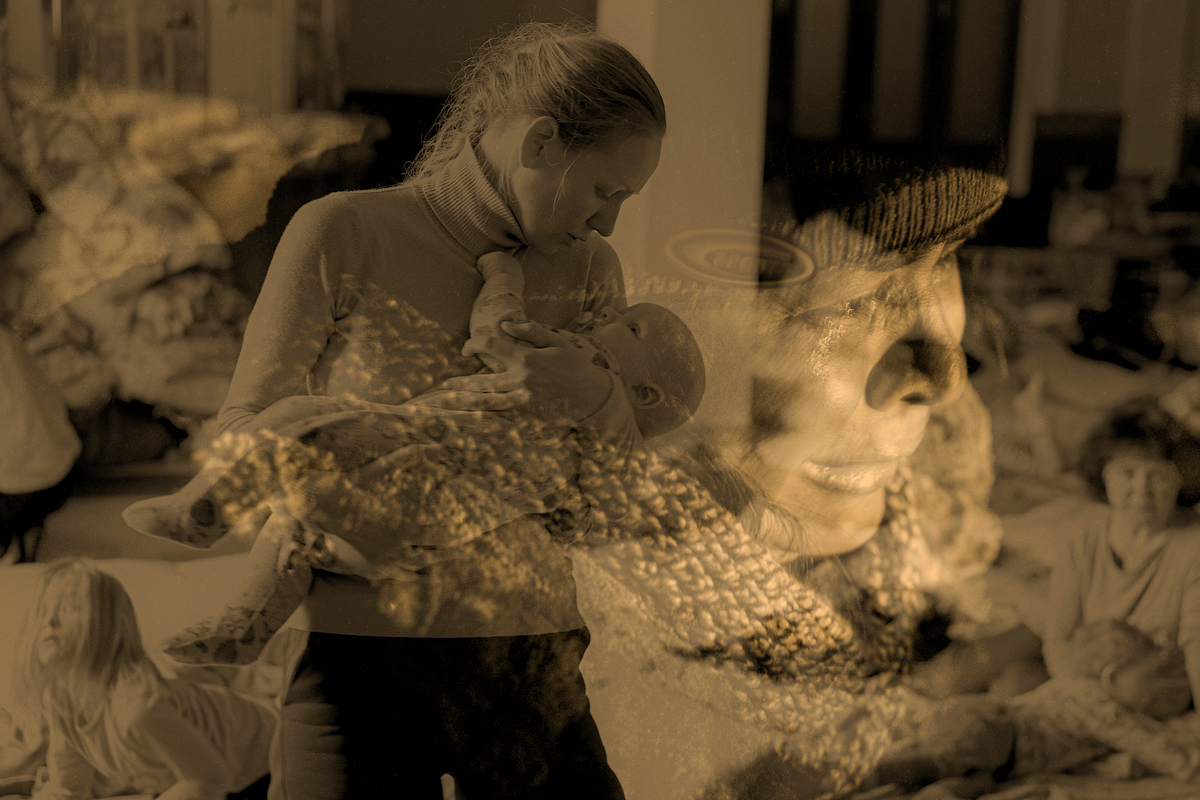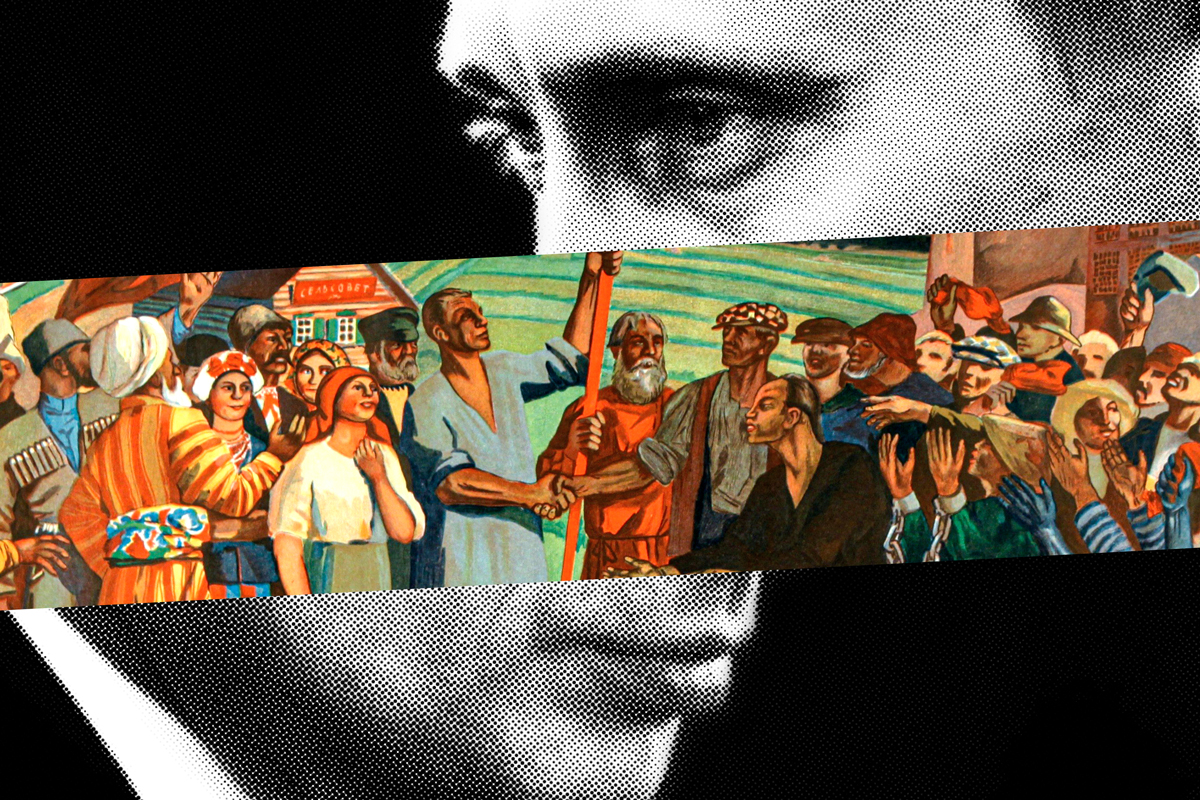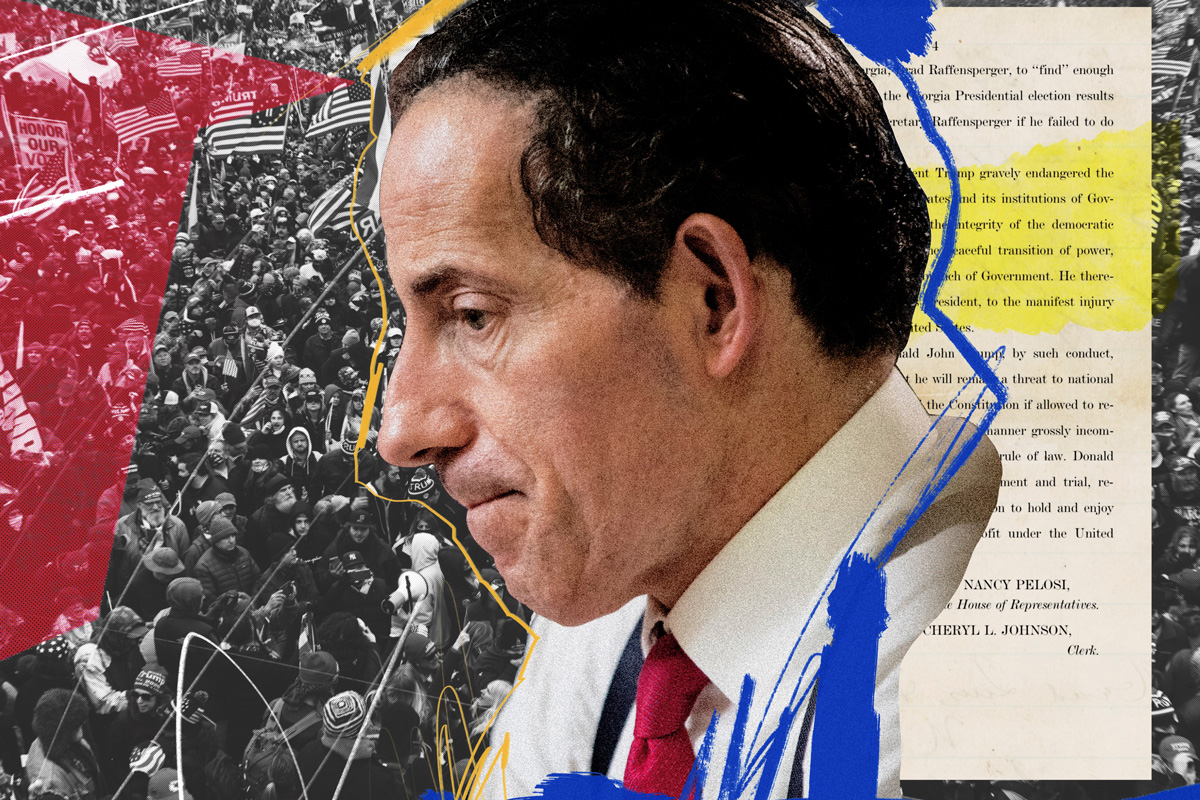The double standard was evident from the outset. When Russia invaded Ukraine on February 24, and millions tried to flee the country, Black and Brown refugees promptly faced many instances of racism in Ukraine—and if they managed to make it out in other adjoining European nations. CNN’s Sara Sidner—who is Black herself—reported that Black exiles were facing dramatically different treatment compared to “other” (read “white”) refugees. One woman from Cameroon who had been living in Ukraine told Sidner that she and her family were pushed off trains and made to wait two days for a train trip to Pyrzemysl, a Polish border town, that took two hours. Indian students who also tried to flee told the same basic story. One such group managed to get to a train platform after spending several days in the freezing cold in an underground bunker in Kharkiv. However, when they got there they, too, were not permitted to board a train to the Western city of Lviv. When one woman in the group tried to get on the train she was forced to disembark—even though there were many empty seats on the train. According to the Indian students, Ukrainian officials brought in Ukrainians to fill the seats rather than let the Indian students board.
As the war has continued, with more than 4 million people streaming out of Ukraine into various EU nations, several of those countries have instituted entirely separate immigration regimes that allow “other” refugees and migrants languish in terrible conditions. Meanwhile, journalists like myself who have long covered European indifference toward Black and Brown migrants and refugees have watched in mounting despair as the same countries have ensured safe passage and generous material support for white people fleeing conflict. Resources, compassion and accommodation have become suddenly available for these blond, blue-eyed and war-worn refugees.
In Calais, France—notorious for its tent camps full of homeless migrants—the government of Prime Minister Emmanuel Macron hosted Ukrainian refugees free of cost in a hostel by the beach. Their Black and Brown counterparts in the EU faced a far harsher reception. A Ukrainian refugee named Mohamed Abouelhoul, together with his wife and daughter, was refused free accommodation even though Abouelhoul was born in Ukraine and has lived there most of his life. Other Brown and Black refugees from Ukraine were less lucky still—an investigation by the British newspaper The Independent revealed that many non-white refugees fleeing Ukraine were put into EU immigration detention facilities.
Resources, compassion and accommodation have become suddenly available for these blond, blue-eyed and war-worn refugees.
One recent dispatch in The Washington Post documented the divergent journeys of a white and Black migrants as they awaited processing at Calais. By the end of the day, the white woman and her child who had fled the Russian invasion of Ukraine was on a free bus headed to the UK. Meanwhile, the man who had fled civil war in South Sudan was left languishing in detention—as he had been for years. “They’re European” he said, rolling up his hoodie and pointing to his skin. “Africa—that’s different.” And it’s not just Africa that’s different: Afghan and Syrian refugees face similar tours of bureaucratic limbo—and indeed, outright hateful and discriminatory treatment from majority-white populations. (For a clear illustration of this dynamic, look no further than the pending French national election, in which centrist Prime Minister Macron is facing off against the nativist and white nationalist leader Marine Le Pen.)
As the Ukraine conflict stretches into months, western nations are rolling out lavish aid packages targeted overwhelmingly toward white Ukrainians. In Germany, the federal government has allocated 2 billion Euros to provide housing and other services to Ukrainian refugees in particular. The British also unveiled an unprecedented program geared specifically toward allowing Britons to sponsor and provide housing for Ukrainian refugees in their own homes for up to three years. These programs do not specify that their beneficiaries must be white—but such outlays get racialized in practice when few or no such programs exist for all the non-Ukrainian (read Black and Brown) refugees that have suffered malignant neglect at the fringes of Fortress Europe for decades.
Poorer—and still more xenophobic—countries such Poland, Slovakia, Hungary and the Czech Republic, that stolidly refused Syrian migrants also fleeing Putin’s bloodlust have suddenly found room in their hearts and budgets for war refugees who looked more like their ideal-type European citizen. Indeed, these nations are not only letting Ukrainian refugees past the border; they’re also preparing to provide them with temporary EU visas along with help in obtaining housing, jobs and other basic services.
The scrutiny into racial bias has not inspired any of the countries in question to be more egalitarian in the treatment of refugees; if anything, it’s invited backlash narratives. Defenders of the status quo are erecting rickety and elaborate rationalizations to justify blatantly racialized treatment. Writing in Project Syndicate, Ian Buruma provided one such revealing argument—headlined “The Contradictions of Compassion”—that desperately sought to conclude that treating people differently based on their skin color is not racist at all. “Let us praise Poles and Hungarians for offering a helping hand to Ukrainians who desperately need one,” Buruma counseled. He then moved into sadder-but-wiser realist mode, suggesting that racially equivocal aid is at least better than other options on offer: “It would be wonderful if Europeans showed the same towards Syrians, Afghans and other victims of war outside the continent. But the fact that on the whole they do not is no reason to smear East Europeans as white supremacists.”
In point of fact, Black and Brown people have heard this sort of thing before—for far too long. White men like Buruma never see a contradiction in prescribing what can and should be the criterion for a country or group to be called white supremacist. It’s just this sort of unexamined racial entitlement that goads many European liberals to hitch themselves to just these kinds of fatuous arguments excusing racism by alleging that it is easier for contiguous nations to exhibit compassion to those close by. There is no racism here, Buruma and his cohort of wised-up observers would blandly assert if they stood at a train station in a Polish border town turning non-white refugees away. For them, the hideous realities of European racism are simply taken-for-granted predicates of state policy and refugee aid—and to ensure that these ugly conditions get no closer review, they always prefer to depict them as the inadvertent consequences of naïve and parochial neighborliness.
The hideous realities of European racism are simply taken-for-granted predicates of state policy and refugee aid.
Of course, Europeans hold no monopoly on racist treatment of refugees. Here in the United States, President Joe Biden announced a program that will accept 100,000 Ukrainian refugees, while pledging to expedite existing applications already submitted by Ukrainians. But as is always the case with immigration-related promises made by the U.S. government, the devil is in the details. The enormity of these quota-driven measures becomes immediately evident in the United States’ discretionary admission of just 11,411 refugees in 2021—after the U.S. withdrawal from Afghanistan left thousands of Afghans to fend for themselves at the hands of the Taliban. Many of them are still awaiting processing in temporary accommodation in under-resourced detention camps in Albania and elsewhere.
The plight of the Afghans is notable because this was a country that faced an American invasion; many of those trying to leave are people who directly or indirectly facilitated the U.S. presence, acting as interpreters and doing other crucial tasks for American military forces. Brown skin trumps any sort of moral duty, however—which is why the passage of Afghan refugees into America has stalled to a slow crawl. The same logic of racialized neglect of course holds for Mexican and Latin American asylum seekers at the southern border of the United States. If Buruma’s theory of neighborliness as the main driver of compassion were a plausible account of refugee policy, Americans would be acting just like Poles, opening their homes to those who have fled thousands of miles often on foot. Instead, the Trumpified vision of a southern border overrun with criminals and other bad actors seems to continue rationalizing a Biden immigration policy that differs from his predecessors’ brutal crackdowns on foreign refugees only in degree, not in kind.
Indeed, the same preferential refugee policies blanketing Europe are already taking hold at the southern U.S. border: Ukrainian migrants regularly get precedence over the Brown migrants who have been awaiting processing for months. The ugly reasoning behind such enforcement regimes is all too plain: if Brown and Black people are easier to kill in ill-advised expansionist wars in Afghanistan and the Middle East, they are also easier to ignore or detain indefinitely. This is not how it should be. As a country that punishes racial discrimination, the United States must do better—as must all western nations that profess anything more than a pro forma allegiance to justice and equality.
In order to fully grasp the baleful impact of this unequal treatment in a moment of humanitarian crisis, we must recur to the insights of critical race theory. It’s a foundational principle of true racial justice to rectify the mistreatment of Black and Brown people in their moments of greatest need. This means, to begin with, a full and critical assessment of the ethnic tribalist presuppositions of immigration and refugee policies that center whiteness as the common racial category, and that continue working to justify the exclusion of racialized “others” in putative liberal democracies. Our human duty of compassion also requires us to recognize that the suffering of war disproportionately harms populations systematically denied equality and justice within systems that allocate resources for people fleeing global conflicts. In other words, compassion for the plight of the Ukrainians cannot and should not translate into willful ignorance of the racism that this war has laid bare.
Rafia Zakaria is the author most recently of Against White Feminism (W.W. Norton, 2021). She is also a columnist for The Baffler and Dawn (Pakistan).



